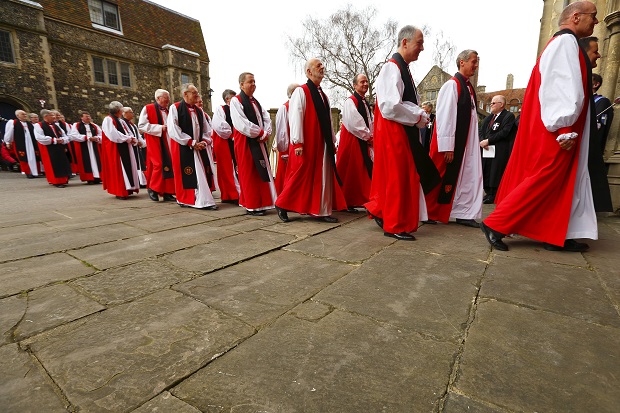Today I have a piece in the Times (£ obviously, you know that) about the power of the Christian Left, following the Anglican bishops’ letter in the Daily Mirror; the Spectator’s Isabel Hardman goes into detail in the Telegraph about how her congregation did a better job of caring for the poor than the state did.
That is what’s at the heart of the argument for Christian conservatism. State spending is effective when there is acute, widespread poverty, but once a country rises above a certain income there are diminishing returns, because the causes are less likely to be wider social and environmental forces. This is a good, or at any rate conservative, argument for spending on overseas aid, where the money really can make a huge difference.
There is a very strong Christian socialist tradition in Britain, and a great many people for whom the faith directs their sense of social justice. These are the men and women involved in the countless charities and community groups across the country, and they are also the traditional backbone of the Labour Party. Then there is the liberal Christian tradition, which is especially found in the hierarchy of all churches, and epitomised by Thought for the Day (I have now trained myself to jump up from the seat and switch off the radio within 1.5 seconds of hearing the phrase ‘and now for Thought for the Day’).
But while there is this social gospel tradition, it’s strange that the Church – which is really very good at welfare and the caring business – would like to see more of it carried out by the state, which does it rather less well, and is also a rival. If some crazy libertarians were to take control of government and reduce its size down to pre-First World War levels, we’d probably see a considerable rise in churchgoing. The bishops would become household names and teenagers would have posters of them in their bedrooms, whereas today they probably have rather less moral authority than, say, Peter Andre. Also the churches and their agencies would also be considerably less influenced by the culture and ideology of the state.
But if you’re in at the deep end of helping the poor, and the people you’re helping have come to rely on state aid, then of course you’re going to protest when that money is taken away. The bishops see and meet people who are really struggling, and when welfare reform makes them poorer still, their shepherd has to be speak up for them. It’s just a naturally asymmetrical argument, because it’s not like taxpayers groaning under the weight of a spendthrift government are going to go to their local bishop to complain (maybe they should, just to remind them that money doesn’t grow on trees).
There’s nothing wrong with the bishops calling for more spending, but it would have been nice if some of them had said something about the previous government borrowing money during fat years, even before the bailouts. After all getting yourself, and your children, into debt is not just an economic issue but a moral one; the whole point of the story in the gospel is that the father takes back the Prodigal Son out of love and forgiveness; he doesn’t then applaud him for his lifestyle and adopt his spending plans.







Comments